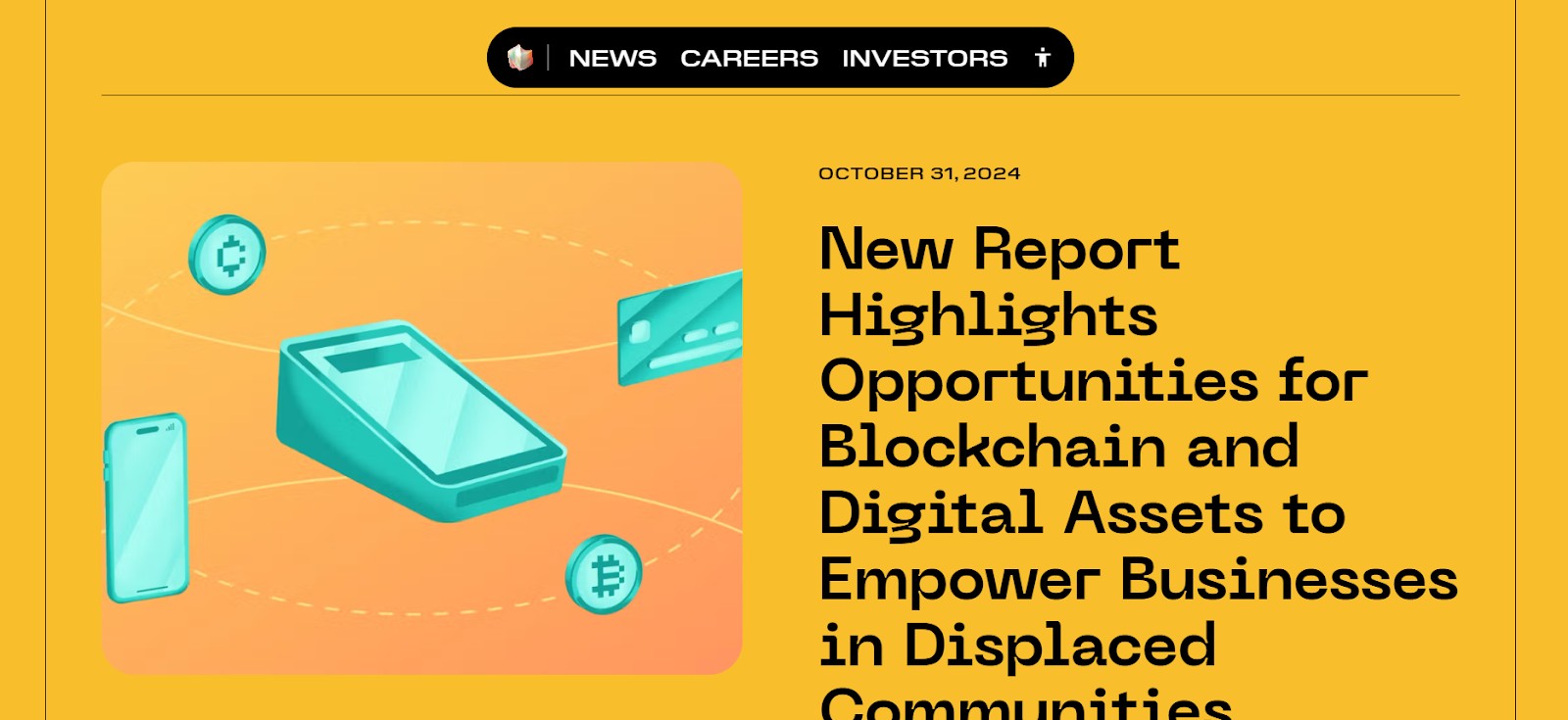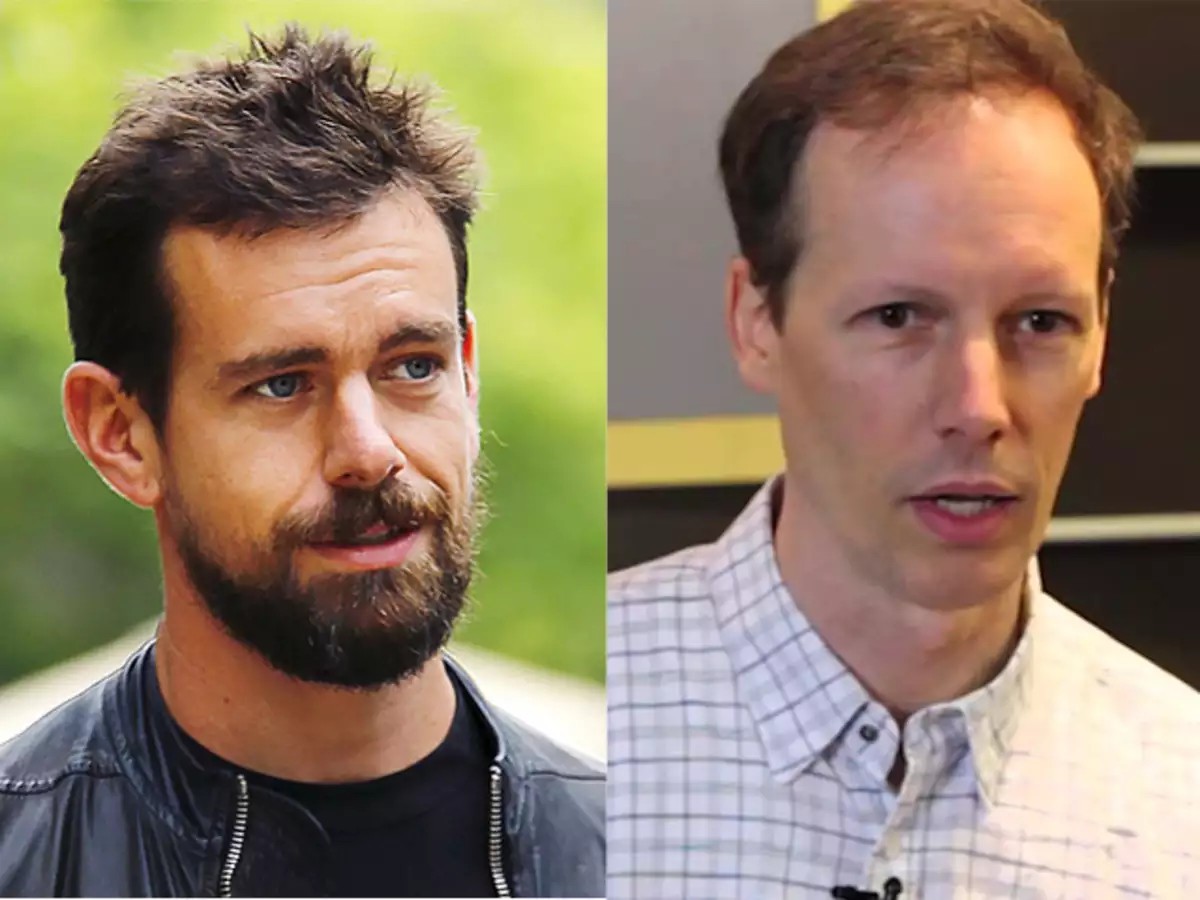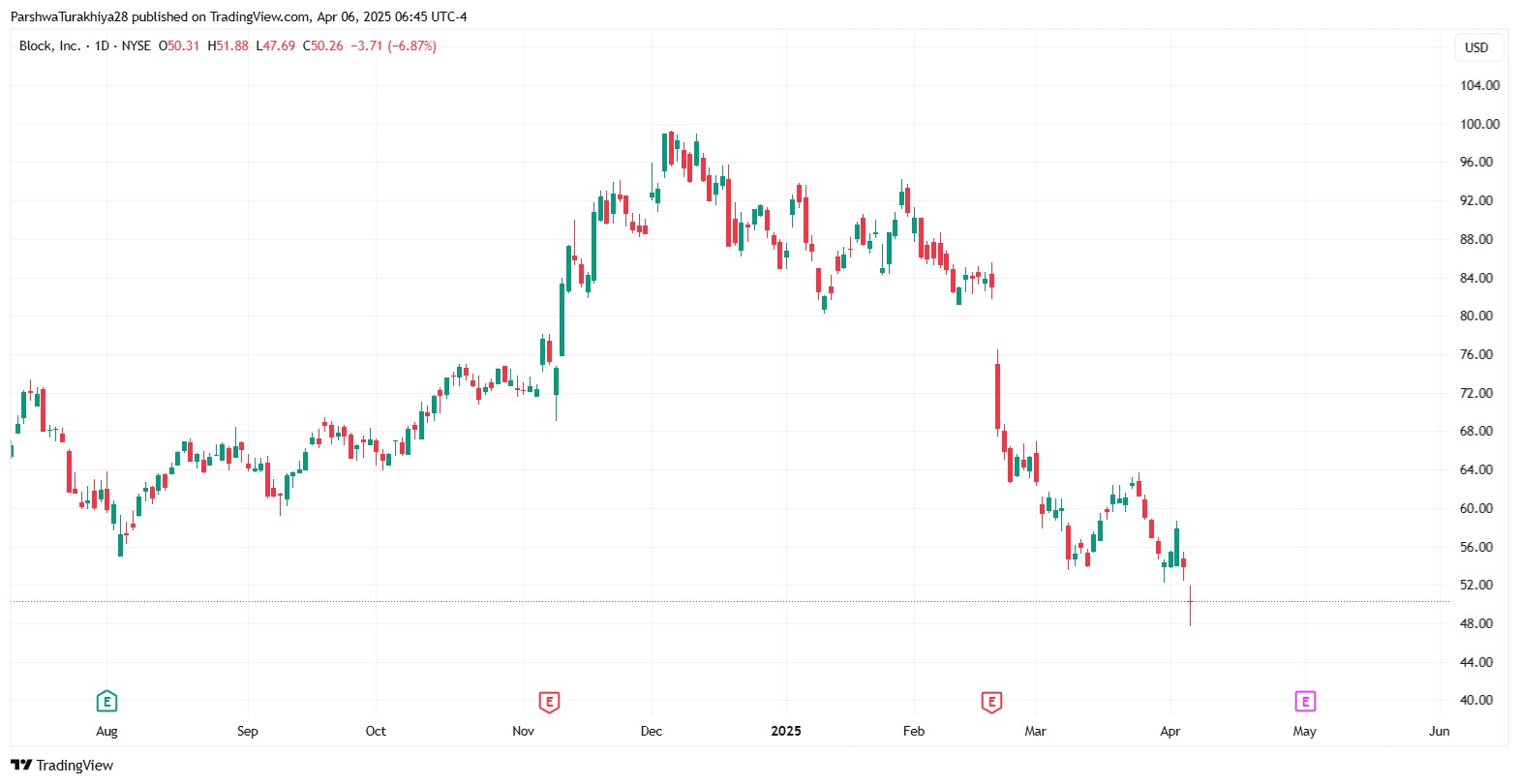Block: A Comprehensive Review



Editorial Note: While we adhere to strict Editorial Integrity, this post may contain references to products from our partners. Here's an explanation for How We Make Money. None of the data and information on this webpage constitutes investment advice according to our Disclaimer.
Block, Inc. is a global leader in financial technology and cryptocurrency infrastructure, best known for its strategic involvement in Bitcoin mining and ecosystem development. Formerly known as Square, the company was co-founded by Jack Dorsey and Jim McKelvey in 2009 and rebranded as Block in December 2021 to better reflect its expanding interests beyond traditional payments.
Block has since made significant strides in advancing Bitcoin mining by designing its own mining chips, creating decentralized infrastructure, and promoting self-custody solutions. With a strong emphasis on decentralization, sustainability, and accessibility, Block is actively shaping the future of Bitcoin from both a technical and philosophical standpoint.
Block overview
Block, formerly known as Square Inc., has evolved from a simple payment processing company into a multifaceted financial technology powerhouse. Under the leadership of Jack Dorsey, the company has expanded its footprint across payments, banking, and digital assets, positioning itself as a central player in the future of finance. This review explores Block’s ecosystem, its key products, and the strategic vision driving its growth.

Type of activity
Block operates as a multi-faceted financial technology company with a strong focus on Bitcoin-related products and services. In recent years, the firm has increasingly emphasized Bitcoin mining and infrastructure development. Its mining strategy revolves around decentralizing access to mining technology and creating hardware that’s more efficient and accessible to individuals and smaller operators.
Additionally, Block is involved in hardware wallet development (Bitkey) and other services that empower users to maintain direct control over their Bitcoin holdings, aligning with its mission to support open and decentralized financial systems.
Region of operation
Block is headquartered in San Francisco, California, and its operations span globally. The company has strategically invested in Bitcoin mining and hardware production in regions with affordable and sustainable energy, such as the United States and parts of Europe. While the specific locations of its mining infrastructure are not publicly detailed, Block has prioritized energy-efficient and environmentally conscious solutions, often turning to regions with renewable power sources like hydroelectric and geothermal energy.
Its products and services, such as the Bitkey hardware wallet, are now available in over 95 countries, showing the company’s expansive global reach.
Market capitalization
As of early 2025, Block, Inc. has a market capitalization of approximately $40–$50 billion, depending on daily trading fluctuations. While Bitcoin mining is only a part of its broader operations, its investment in mining chips and infrastructure has added significant strategic value and positioned the company as a notable player in the crypto space.
Block's diverse revenue streams, including Cash App, Square merchant services, and Bitcoin trading, contribute to its financial strength and ability to innovate in the Bitcoin mining sector.
Company’s main product
Block’s core Bitcoin-focused offerings include:
Bitkey. A self-custody Bitcoin hardware wallet that empowers users to own and control their BTC securely.
Bitcoin mining infrastructure. Including a custom-built 3nm Bitcoin mining chip, designed to decentralize and democratize mining access.
Mining system development. Block is working on building an open mining ecosystem that lowers the barrier to entry and reduces reliance on centralized manufacturers.
Beyond Bitcoin-specific products, Block also runs Cash App, one of the most popular platforms for Bitcoin purchases and peer-to-peer payments in the U.S.
Block founders
Block was founded by Jack Dorsey and Jim McKelvey in 2009. Jack Dorsey, also known for co-founding Twitter (now X), is a well-known advocate for Bitcoin and decentralization. Under his leadership, Block has aggressively pushed into the Bitcoin space, seeing the digital currency not just as an investment but as a core part of the company’s long-term mission.

Block history
2009: Founded as Square, the company initially focused on mobile payments for small businesses.
2018–2020: Square began allowing Bitcoin purchases through Cash App, becoming an early adopter among fintech companies.
October 2020: Invested $50 million into Bitcoin as a treasury asset.
2021: Rebranded as Block, reflecting the shift toward blockchain and cryptocurrency innovation.
2023: Launched Bitkey, a Bitcoin self-custody wallet, rolled out in 95+ countries.
April 2024: Announced the completion of a custom 3nm Bitcoin mining chip, part of Block’s plan to decentralize mining and increase competition in chip manufacturing.
Ongoing: Continues to develop an open Bitcoin mining system and contribute to open-source blockchain projects.
Interesting facts
AI-driven efficiency: Block integrates AI technology to optimize mining operations, significantly reducing energy consumption and operational costs.
Geothermal energy in Iceland: The company’s Icelandic facility is entirely powered by geothermal energy, ensuring zero carbon emissions.
Global hash rate leader: In 2024, Block achieved a hash rate of 6.2 EH/s, setting a new industry benchmark.
Quote: “Our goal is to drive innovation in Bitcoin mining while leading the charge toward a sustainable blockchain future.” – Jack Dorsey, Co-founder and CEO of Block, Inc.
Where you can buy shares/goods of the Block

Block, Inc., formerly known as Square, is publicly traded on the New York Stock Exchange (NYSE) under the ticker symbol XYZ.
Investors can purchase shares of Block through various brokerage platforms, including Fidelity, Charles Schwab, and TD Ameritrade. To do so, one would typically create an account with one of these brokers, deposit funds, and then place an order to buy XYZ shares.
Trailblazer in Sustainable Blockchain Solutions
If you're new to tracking Bitcoin mining companies like Block, don't just look at stock charts or quarterly reports — dig into their ASIC supply chain strategy. What makes Block stand out is its vertical integration in chip design. While most companies rely on third-party chipmakers, Block is designing its own 3nm mining chips. This move isn’t just about speed — it’s about independence from supply chain bottlenecks. For a beginner, learning to track this level of internal tech development gives you a front-row seat to competitive edges that aren’t reflected in the balance sheet until months later.
Also, skip the noise around daily share price and start watching energy arbitrage. Block’s choice of regions like Iceland isn’t just for headlines — it’s based on surplus geothermal energy that offers stable electricity pricing. As a beginner, you can actually monitor local energy policy shifts in those regions to anticipate cost advantages or risks before they show up in investor reports. It’s a niche skill, but one that can help you stay ahead of the market narrative and spot when operational efficiency might translate to stronger long-term profitability.
Conclusion
Block’s transformation from a payment processor to a vertically integrated Bitcoin powerhouse illustrates how deeply the company is betting on decentralization, innovation, and energy-conscious mining. With initiatives like the 3nm mining chip and Bitkey wallet, Block is not just participating in the crypto space — it’s actively reshaping its infrastructure.
The decision to build its own mining hardware and operate in geothermal-rich regions like Iceland speaks to a long-term strategy focused on autonomy and sustainability. While platforms like Cash App remain its revenue core, Block’s push into open mining ecosystems positions it uniquely for the next phase of Bitcoin’s evolution. For investors and crypto watchers alike, the company offers a glimpse into what happens when financial services and blockchain conviction merge at scale.
FAQs
What is Block’s primary focus?
Block focuses on Bitcoin mining, emphasizing sustainability and advanced technology.
Where are Block’s mining facilities located?
Block operates in North America, Europe, and Asia, strategically placing facilities near renewable energy sources.
How can I invest in Block?
You can purchase Block shares on the NASDAQ under the ticker BLCK through brokerage platforms like Fidelity or TD Ameritrade.
What makes Block unique in the Bitcoin mining industry?
Block stands out for its integration of AI-driven efficiency and its commitment to renewable energy in mining operations.
Related Articles
Team that worked on the article
Oleg Tkachenko is an economic analyst and risk manager having more than 14 years of experience in working with systemically important banks, investment companies, and analytical platforms. He has been a Traders Union analyst since 2018. His primary specialties are analysis and prediction of price tendencies in the Forex, stock, commodity, and cryptocurrency markets, as well as the development of trading strategies and individual risk management systems. He also analyzes nonstandard investing markets and studies trading psychology.
Also, Oleg became a member of the National Union of Journalists of Ukraine (membership card No. 4575, international certificate UKR4494).
Chinmay Soni is a financial analyst with more than 5 years of experience in working with stocks, Forex, derivatives, and other assets. As a founder of a boutique research firm and an active researcher, he covers various industries and fields, providing insights backed by statistical data. He is also an educator in the field of finance and technology.
As an author for Traders Union, he contributes his deep analytical insights on various topics, taking into account various aspects.
Mirjan Hipolito is a journalist and news editor at Traders Union. She is an expert crypto writer with five years of experience in the financial markets. Her specialties are daily market news, price predictions, and Initial Coin Offerings (ICO).
An investor is an individual, who invests money in an asset with the expectation that its value would appreciate in the future. The asset can be anything, including a bond, debenture, mutual fund, equity, gold, silver, exchange-traded funds (ETFs), and real-estate property.
Cryptocurrency is a type of digital or virtual currency that relies on cryptography for security. Unlike traditional currencies issued by governments (fiat currencies), cryptocurrencies operate on decentralized networks, typically based on blockchain technology.
Forex leverage is a tool enabling traders to control larger positions with a relatively small amount of capital, amplifying potential profits and losses based on the chosen leverage ratio.
Bitcoin is a decentralized digital cryptocurrency that was created in 2009 by an anonymous individual or group using the pseudonym Satoshi Nakamoto. It operates on a technology called blockchain, which is a distributed ledger that records all transactions across a network of computers.
Risk management is a risk management model that involves controlling potential losses while maximizing profits. The main risk management tools are stop loss, take profit, calculation of position volume taking into account leverage and pip value.






























































































































